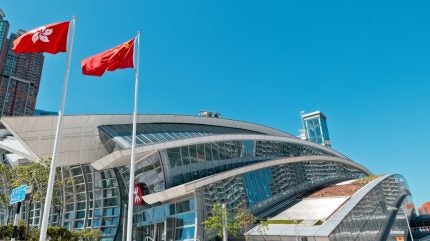
Hong Kong’s rail operator MTR said it has expanded its long-distance and intercity services to mainland China, via its subsidiary High Speed Rail (HSR).
The majority of the routes are daytime operations between the Special Administrative Region (SAR) and the populous regions of South China.
But HSR has launched new sleeper services from the island city to major Tier One cities, including Beijing and Shanghai.
Both the sleeper services run overnight on weekends, from Friday to Monday. The Shanghai sleeper has cut the rail journey from 19 hours to just 11, and the Beijing service has similarly cut travel time from more than 24 hours to 12 hours and 30 minutes.
The status of Hong Kong has been contested internationally in recent years, because although it was returned to Chinese control by the UK in 1997, it has operated as a Special Administrative Region under the “One country, two systems” principle.
Since 2014 the relationship between the former British colony and the rest of China has been disputed, with local protests against what some Hong Kongers think is an encroachment of Beijing’s authoritarian government on its separate political and legal systems.
China has repeated that Hong Kong is part of the country in response to protests, claims and counterclaims.
Better connecting the region to China’s financial and political capitals is part of the government’s policy to “deepen integration,” as MTR CEO Jacob Kam explained.
“Sleeper train services further enhance the connectivity between Hong Kong and Beijing, as well as Shanghai, leveraging the advantages of deepening integration between Hong Kong and the mainland,” he said.
Trains used on both routes will consist of 16 cars, comprising 13 sleeping cars, one dining car and two second-class seating cars. The Shanghai service includes one premium sleeping car, according to HSR.
Tickets will range from $120 (USD) to $148 to Beijing, and $87 to $234 to Shanghai, which is approximately in line with economy flight tickets between the cities.
The commuter route volume between Hong Kong and southern Chinese cities has also increased, including 26 services to Guangzhoudong, 159 to Shenzhen, and 106 to Futian.



